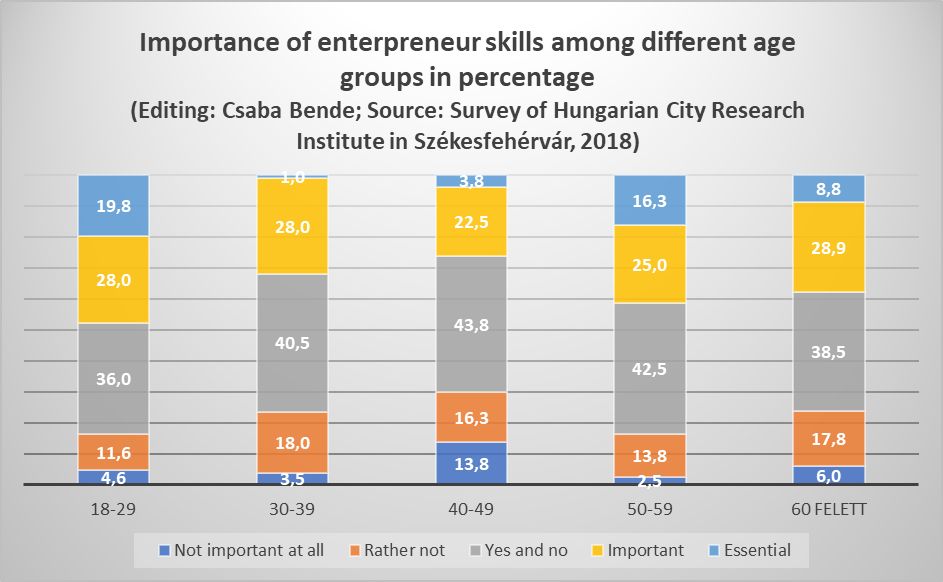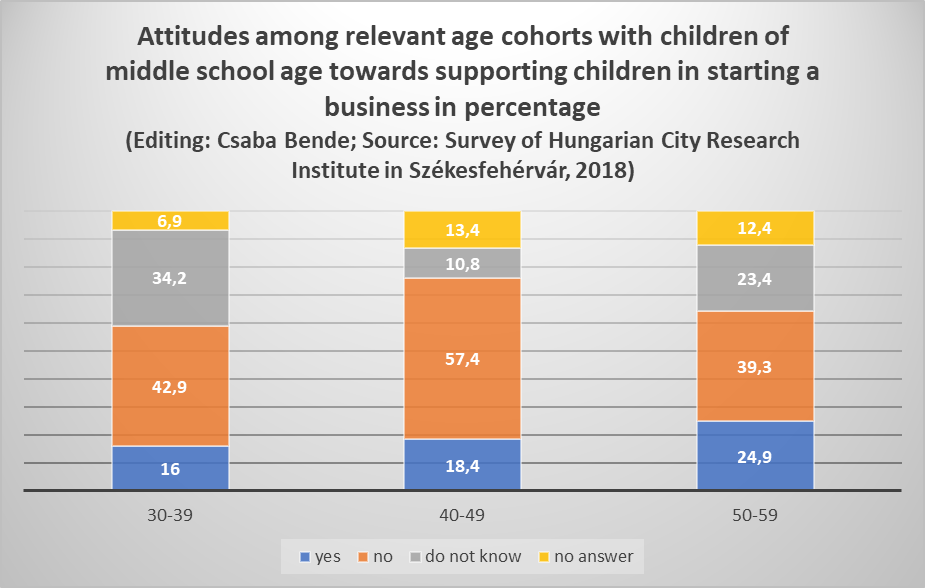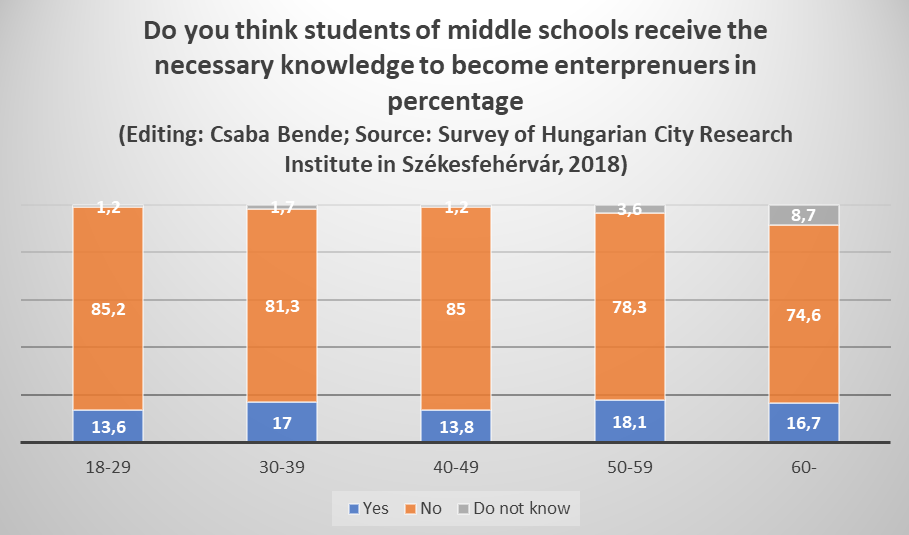InnoSchool - Attitudes towards entrepreneurship - a research by Central Transdanubian Innovation Agency
20-12-2018
Central Transdanubian Innovation Agency is committed to understand better the process that shape the every day life and determine the future of our region. Therefore, the agency has been effectively working on exploring the main patterns of the society of Székesfehérvár regarding attitudes towards entrepreneurship which can be an essential input for the InnoSchool project. CTRIA initated a survey that was carried out by the Hungarian City Research Institute (Magyar Városkutató Intézet). The survey targeted the residents of Székesfehérvár above 18 and represents the whole population of the city by age, gender, household size, household income and so forth thanks to a sample of 500 participants. Thus, it enables our agency to have a whole picture of the residents opinion.
The findings of the research is really exciting and completely transformed our thinking about the local residents attitudes towards entrepreneurship and innovation. In the followings, we highlight three key results of the reserach.
First, it was surprising that within our sample, the youngest cohort (those between 18 and 29) considered on an average the highest the enterpreneur skills as important and essential in today’s life (Figure 1). We have examined this from gender perspective and realized that young women consider these skills more important than their young male counterparts, a majority (more than 55%) of young women consider these skills important and essential. If this phenomena exists among adolescents, then it is important to develop the Innovative Learning System in a way that reflects more to the expectations of young women.
Figure 1 Importance of enterpreneur skills among different age groups

What is more striking is the fact that the importance of enterpreneur skills was significantly lower in other age groups, and was the lowest among those who are between 40-49. Therefore, we have examined whether these generations would support their child or children in middle school age to set foot on the way of enterpreneurship. What came was not suprising knowing the previous results. On an average 46% of the three relevant age groups would not advice or support their child or children to become an enterpreneur (Figure 2). Therefore, enterprenuers of the future do lack of family support and examples of enterpreneur roles which might be a significant barrier to the successfull implementation of new curricula with more emphasize on enterpreneurship.
Figure 2 Attitudes among relevant age cohorts with children of middle school age towards supporting children in starting a business

We have also explored what the youngest age group thinks of the gained knowledge in middle schools, whether it provides them with the necessary skills to become enterprenuers (Figure 3). Only 15% of them answered that middle schools prepare them for enterprenuer life, while the rest did not agree with it. Therefore, we can conclude that the youngest cohort thinks enterpreneuer skills a really important thing in life, the middle school ccurricula does not provide them with the necessary knowledge needed as enterprenuers. What we see is a relevant gap between expectations and actually received knoweldge. In this sense InnoSchool project answers to an existing problem in Székesfehérvár.
Figure 3 Opinions about the knowledge received in middle schools related to enterprenuer skills

